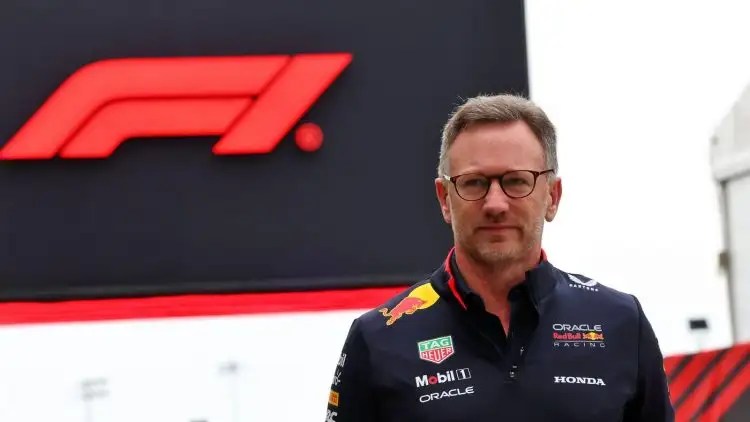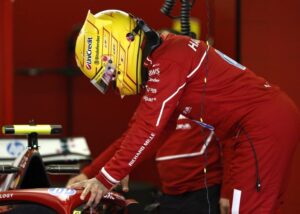Just in:Christian Horner identifies ‘by far our biggest challenge’ in huge Red Bull change…read More

Christian Horner identifies ‘by far our biggest challenge’ in huge Red Bull change…read More
Christian Horner, the team principal of Red Bull Racing, has acknowledged the monumental challenge his team faces as they prepare to build their own power units for the first time in 2026. This development comes amid a sweeping overhaul of Formula 1’s technical regulations, which will introduce significant changes to both powertrains and chassis designs.
Horner, speaking to talkSPORT, expressed confidence that Red Bull Powertrains would be able to compete with established manufacturers such as Ferrari and Mercedes. However, he admitted that the scale of this undertaking represents the team’s biggest challenge in Formula 1 to date. He described the upcoming changes as the most significant shift in the sport in over six decades, calling it a monumental task for every team on the grid.
Red Bull’s decision to build their own power unit comes after a historic partnership announced earlier this year with Ford. This collaboration will see Red Bull and Ford jointly develop engines that comply with the new regulations, marking a major milestone for the team. The partnership also signals the end of Red Bull’s longstanding technical collaboration with Honda, which will shift to becoming Aston Martin’s factory power unit supplier in 2026.
Despite this transition, Horner remains optimistic that Red Bull will meet the challenge and produce a competitive engine from the start. He emphasized that while the task ahead is large, Red Bull is approaching it with the right people, facilities, and mindset to succeed. Horner made it clear that this is no small feat, as the team will be competing against automotive giants like Ferrari and Mercedes. But he believes Red Bull’s track record of engineering excellence and innovation will be crucial in overcoming these challenges.
The 2026 regulations aim to place a strong focus on sustainability, with a major emphasis on hybridization and environmental efficiency in the power unit designs. These changes, combined with a complete reset of the chassis rules, will reshape the sport in one of the most comprehensive overhauls in Formula 1 history. Horner described the upcoming shift as “massive,” highlighting its significance in the sport’s evolution.
Looking ahead, Horner pointed out that 2025 will be a crucial year for all teams, as it will be the final season under the current regulations. He noted that teams will be looking to maximize their performance in the last year of the existing rules before shifting their focus entirely to the 2026 changes. “It’s a balancing act,” Horner said, adding that the 2025 season will be highly competitive, with teams converging in performance levels. This, he added, only adds to the complexity of the transition to the new regulations.
Horner also joked that Formula 1 has a habit of changing the rules just as things start to get interesting. The 2026 reset, he explained, is the largest change the sport has seen in decades, affecting both the powertrain and chassis aspects of the car. Every team, including newcomers like Cadillac, which will join the grid in 2026, will need to adapt to these changes, making the competition even fiercer.
In spite of the challenges posed by these sweeping changes, Horner remains confident that Red Bull has the tools to succeed. He believes that Red Bull’s strong team culture, combined with the expertise of their partners at Ford, will allow them to rise to the occasion. “It’s going to take time,” Horner acknowledged, “but we’re confident we can compete at the highest level.”
The 2026 regulatory changes will create a more level playing field for all teams, allowing new opportunities for Red Bull to further solidify its place among Formula 1’s elite. With a focus on sustainable technologies and a more open competition, the changes could usher in a new era of the sport.
Horner’s optimism, tempered by the knowledge of the scale of the task ahead, reflects Red Bull’s determination to not only meet but exceed the expectations placed on them. The partnership with Ford and the team’s track record of success provide a strong foundation for tackling the challenges of the upcoming era. However, as Horner noted, success will depend on how well teams adapt to the new regulations in 2026, making it a crucial year for Formula 1 as a whole.



